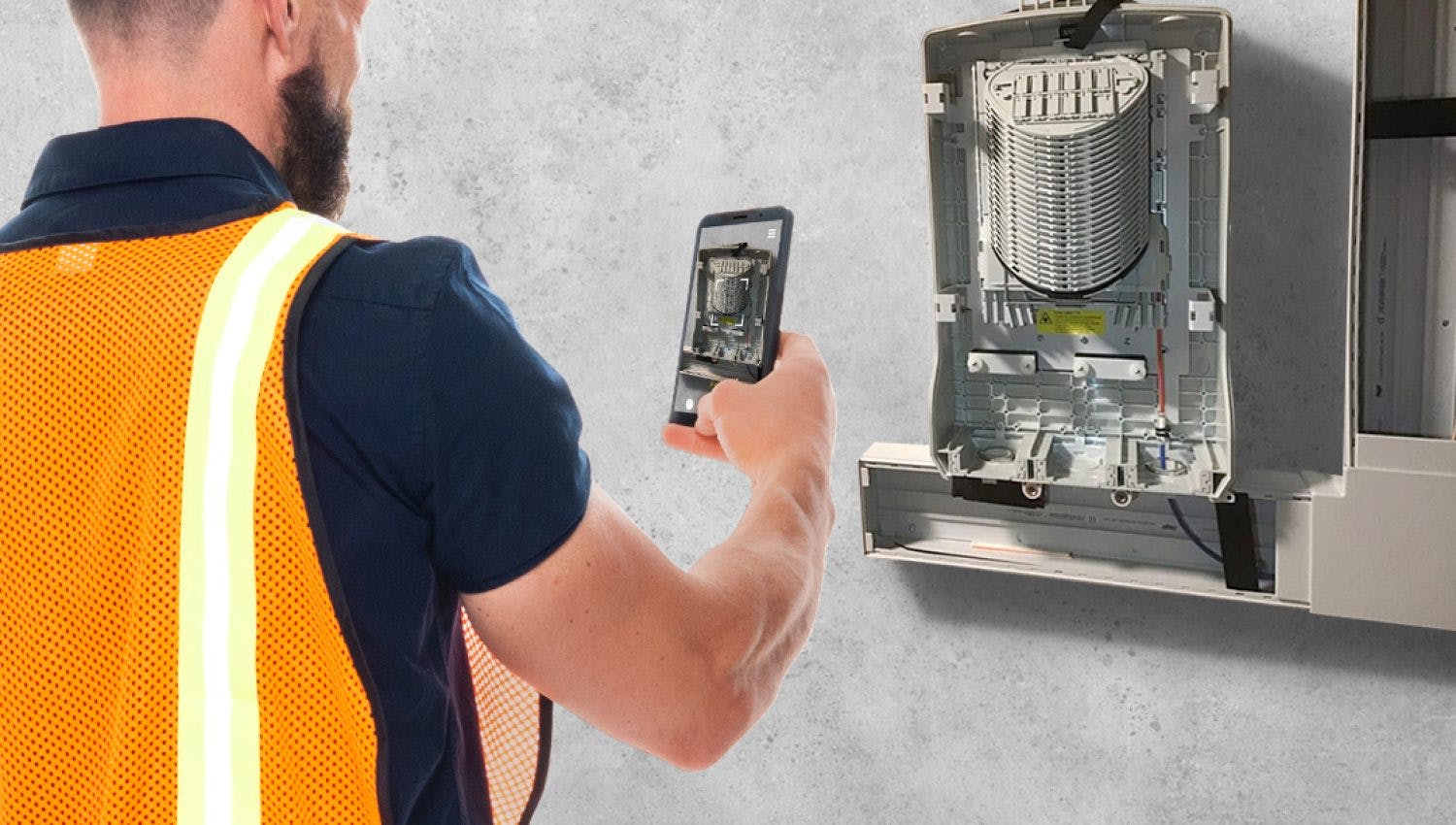According to Verdantix’s study “Empowering the modern workforce, Creating a More Informed, Connected and Responsible Workforce with Technology”, 67% of field service decision-makers are using or planning to use digital solutions to address the skills shortage associated with the retirement of skilled employees, and 100% are motivated by the efficiency and productivity gains that field employees will derive from their use. Among the various existing solutions (augmented reality, wearables, drones, etc.) computer vision seems to be coming into its own, with 46% of those surveyed having already implemented it, 40% having begun to do so, and 13% planning to do so. First Time Right Automation, a new category of software based on computer vision, analyzes photos taken by field workers in real-time. It promises to increase the First Time Right ratio of the deployment and maintenance operations carried out on critical infrastructures.
But how does First Time Right Automation actually enable field service companies to increase efficiency and productivity?
Reduce the time spent by field staff on reporting
While time spent on site is essential for good productivity, time spent on reporting is very time-consuming. Although they have evolved towards digital formats, the tools currently available are not suited to such constraints: checklists and forms are tedious to fill out, and manual completion often leads to mistakes. Over 50% of workers admit that reporting and administrative tasks generate friction in their mission, according to a 2022 Service Council study. Yet this information feedback is essential, as it constitutes proof of the work performed, serving as follow-up documentation and support for the teams in charge of paying field crews. By offering a mobile solution that captures information directly from photos taken by field workers, First Time Right Automation enables them to devote their time to their job rather than writing reports.
Unit-T, Deepomatic’s emblematic customer in charge of deploying smart energy meters in Flanders on behalf of Fluvius (the Belgian electricity and natural gas network operator), measured a 25% reduction in its technicians’ reporting time by using image recognition to document its installations.
Increase the conformity of operation reports
The quality of documentation for field operations is also a crucial issue, and one which is likely to generate repeated trips. It is often the network-owning companies who appoint their own documentation standards, and if these are not respected by their subcontractors, the latter have to bear the cost of coming back to the site to take new photos. It is, therefore, essential to check in real time the quality and reliability of the photos and other information supplied by the worker responsible for operating the equipment.
Deepomatic’s First Time Right Automation platform has enabled Unit-T to reduce its revisit rate for non-compliant photos to zero. For its part, Telefonica’s Colombian subsidiary (Movistar) achieved a 98% rate of completeness in photo reporting for its fiber optic connection operations.
Automating quality control to validate work conformity
Automating quality control is another illustration of the productivity and efficiency gains expected. A number of companies are accustomed to carrying out this control manually via back-office staff: as soon as the field worker completes his work on site, he generates a report which is sent directly to the quality control teams, who must validate the operation in order to close it. This can take up to 15 minutes during peak periods, keeping the on-site agent waiting for the green light. By automating quality control with First Time Right Automation, only the most problematic operations are redirected to quality control managers to provide support to the field agent.
Other companies have introduced random audits: a sample of operations is randomly selected to check the work's quality, and this audit is carried out a posteriori, either on site or remotely. This method is not only very time-consuming – taking several days, if not weeks – but it is also costly, since it monopolizes resources and requires additional control visits.
By automating quality control, First Time Right Automation enables field service companies to put this process back at the heart of an operation, therefore increasing its efficiency. 100% of operations are checked in real-time, and quality standards are applied across the board to all operations, even those carried out by subcontractors. Deepomatic customers have observed a reduction in their rework rate of up to 35%, a significant impact in the context of tightened OPEX control.
Thanks to First Time Right Automation, field service companies can increase their business and, therefore, their revenues without having to worry about the quality of their service.
Unit-T has multiplied the volume of its operations by 5 while reducing the resources required for quality control.
Use data from the field to prepare operations properly
Improving efficiency also means avoiding unnecessary travel. Intervention on equipment that has deteriorated too much, dispatching a field employee who is not equipped with the right tools, or who simply doesn’t have the right skills to do the job: all these scenarios underline the importance of being able to access data relating to previous operations carried out in the past. This data, which is fed back via First Time Right Automation, enables repair and preventive maintenance operations to be planned as soon as they become necessary so as not to compromise future routine operations. By knowing which types of equipment to work on, field operation managers can also ensure that the employee who will be sent on-site will have the right qualifications to do the job and will have the right tools to intervene.
With a better understanding of the most common causes of failure in operations, activity managers can also set up training programs designed to improve the skills of field employees and thus have a long-term impact on team efficiency.
Whether it’s optimizing time spent on reporting, ensuring compliance, or guaranteeing quality control of field operations, First Time Right Automation is revolutionizing the way field employees install and maintain equipment and infrastructure. The benefits for everyone involved, whether on-site or in the back office, are measurable and guarantee increased productivity and efficiency.
To find out more about First Time Right Automation for field service companies and how Deepomatic can support you in implementing this solution,
Listen to our customer, CityFibre, talking about the benefits of our platform in their fiber rollout project.





